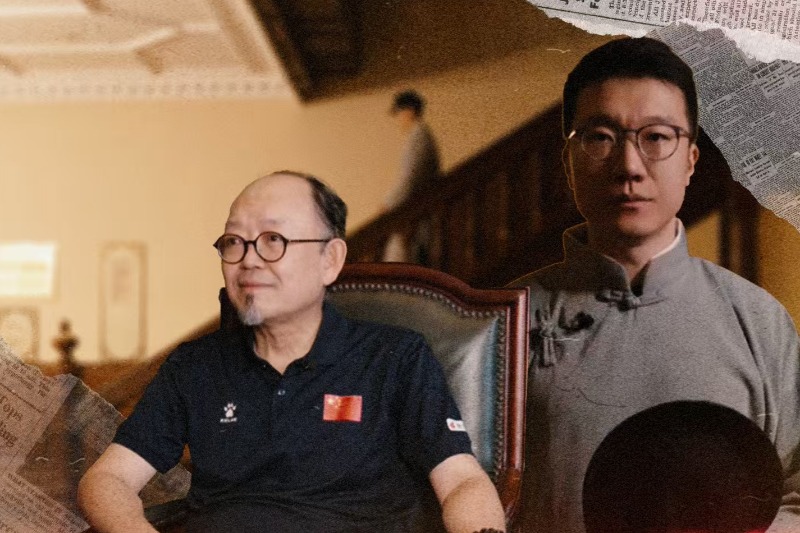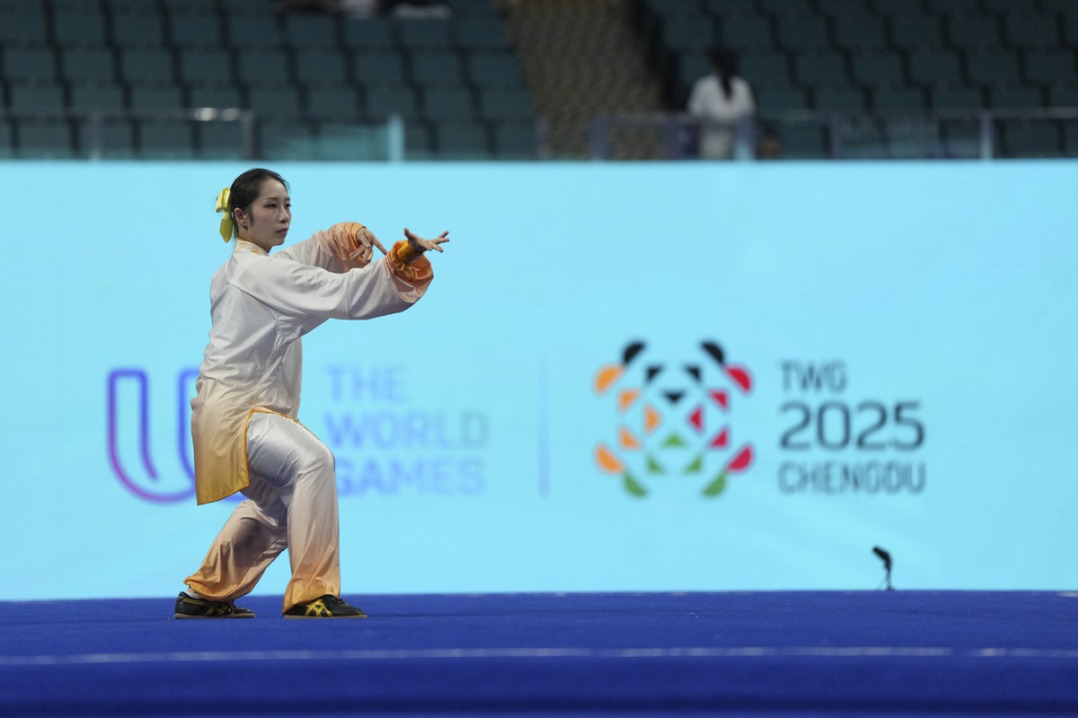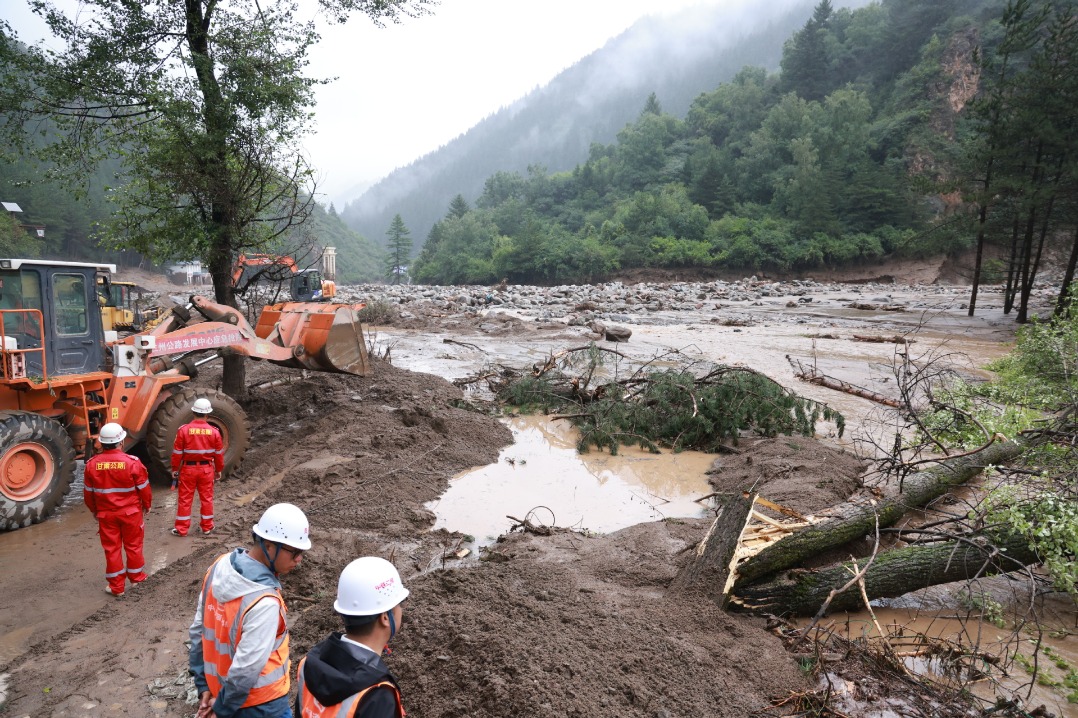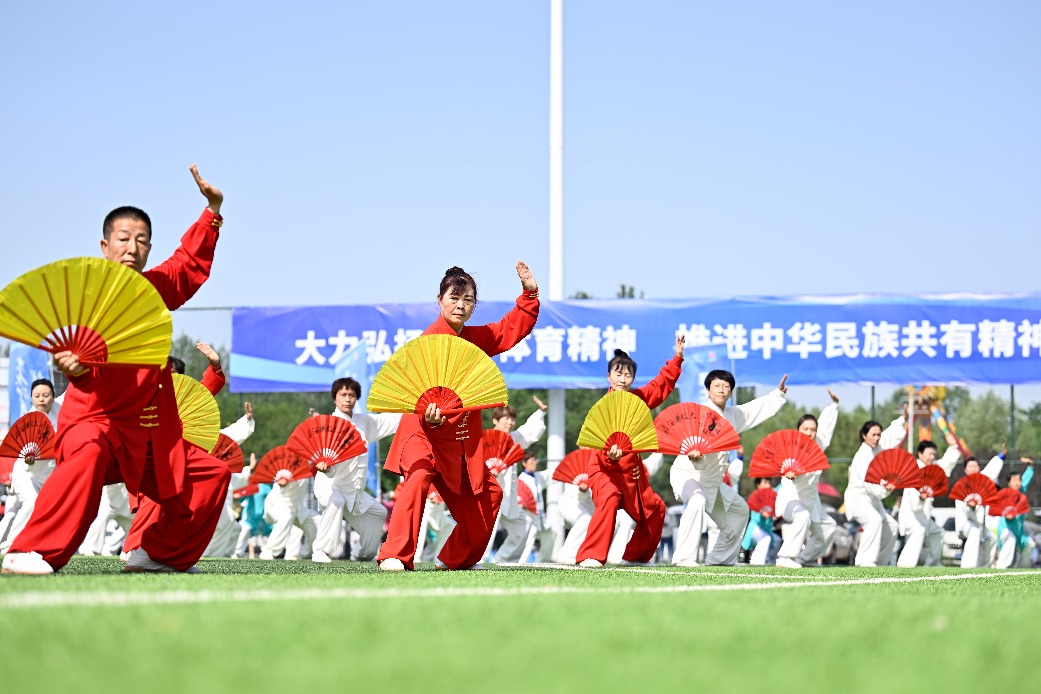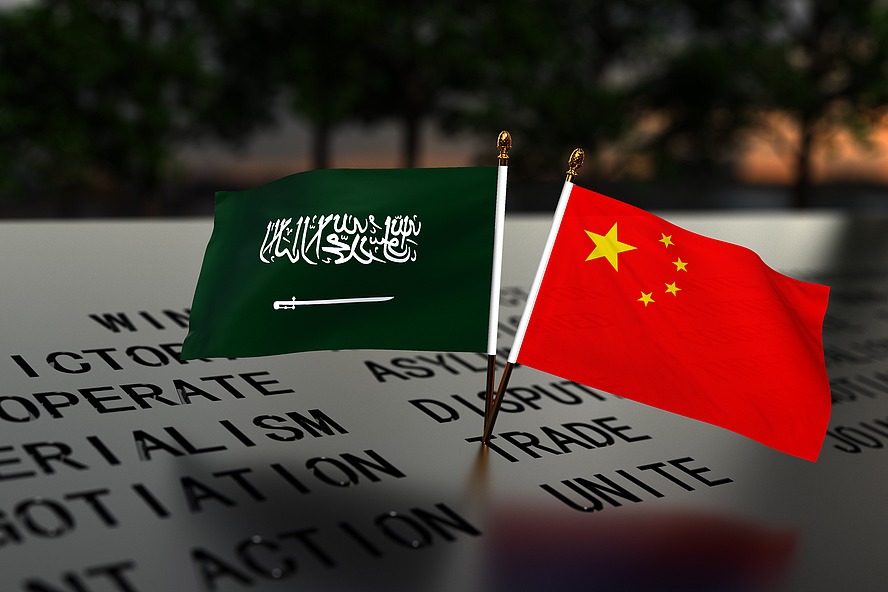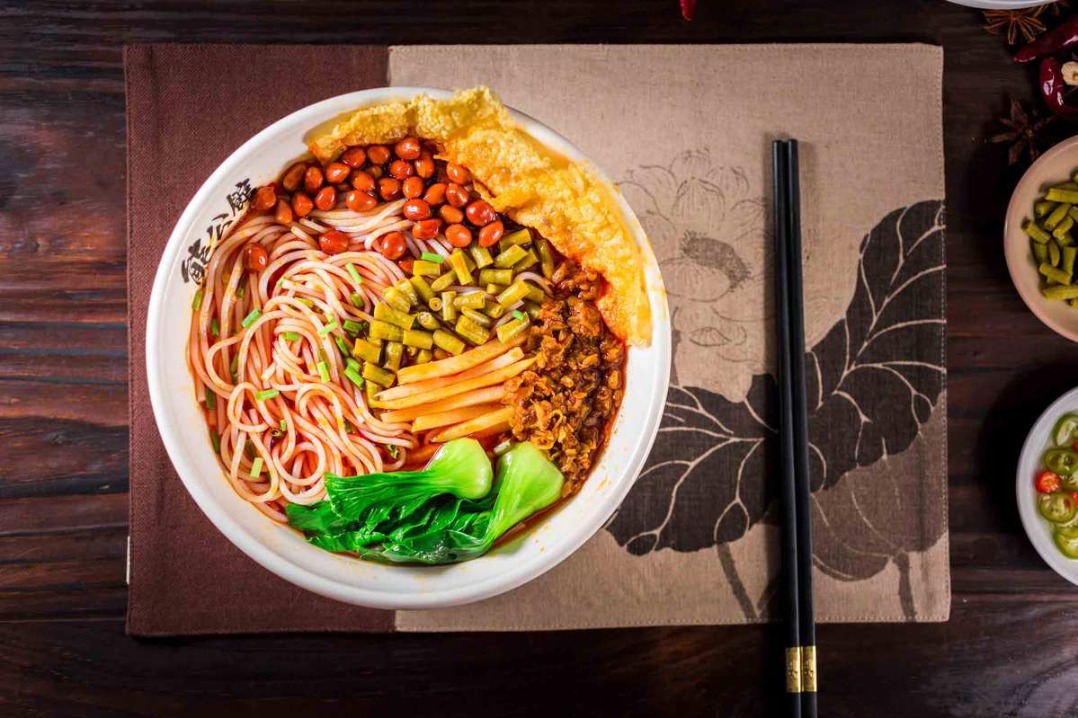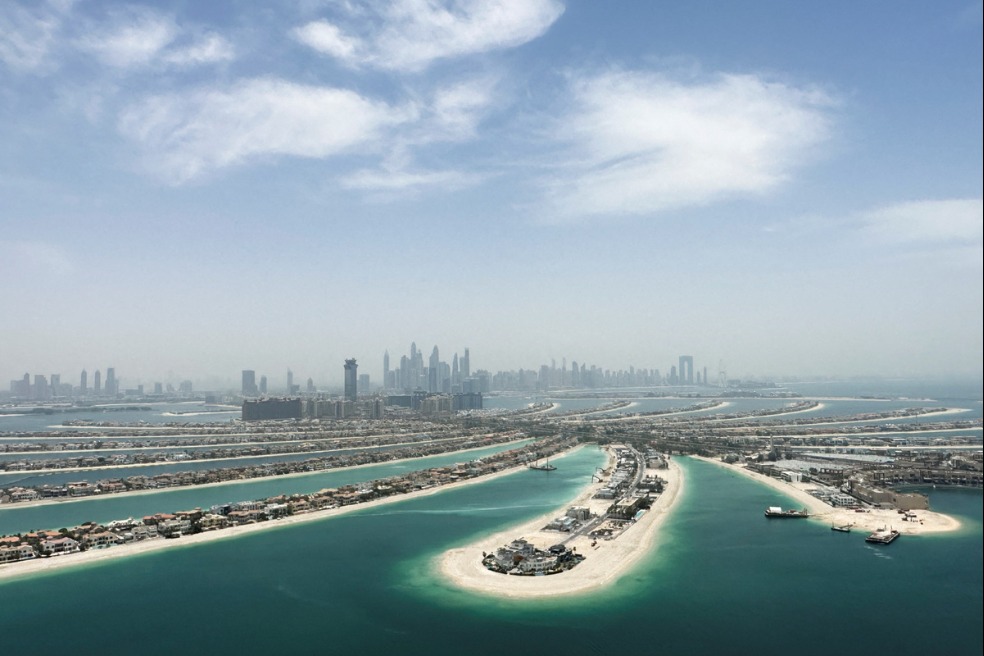For a more inclusive global future
The lesson of the past 80 years, since victory in two major wars, is that peace must be protected by truth, upheld by institutions and sustained by cooperation

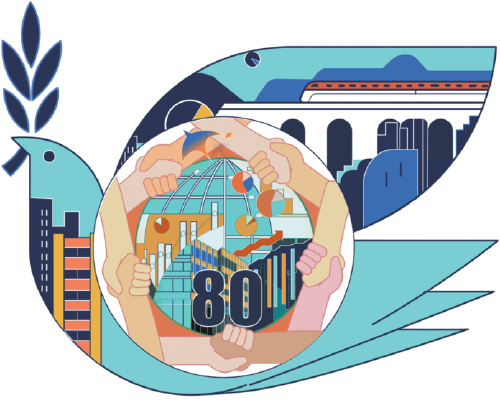
This year is the 80th anniversary of victory in both the Chinese People's War of Resistance Against Japanese Aggression (1931-45) and the World Anti-Fascist War. The occasion is far more than a ceremonial parade; it is a solemn reminder of the profound cost of global conflict and the hard-won victories that shaped the modern international order. As we pause to reflect on the achievements and shortcomings of the last eight decades, the significance of such commemorations has only deepened.
Marking this anniversary is critically important in today's context, as the world is witnessing a disturbing resurgence of right-wing extremism, nationalism and historical revisionism. Notably, in Japan, sections of the political establishment and media have sought to downplay or distort the country's wartime aggression, straining relations with its neighbors and undermining regional reconciliation.
The dangers are not confined to East Asia. Across Europe, North America and elsewhere, extremist movements are echoing fascist ideologies of the past, challenging democratic norms, promoting xenophobia and threatening social cohesion. These developments underscore the urgency of remembering history truthfully — not as a tool of division, but as a moral compass to prevent past tragedies from repeating.
The 80th anniversary should thus serve as a platform to reassert a commitment to peace and development, to denounce militarism and to reaffirm the collective global responsibility to protect peace, especially in times of rising geopolitical tensions.
The Allied victory in 1945 did more than end a brutal war — it laid the foundation for a rules-based international system designed to preserve peace and prevent future conflict. Institutions such as the United Nations, the World Bank and the International Monetary Fund emerged to promote cooperation and provide platforms for dialogue. However, the post-World War II order now stands at crossroads.
Globalization, once hailed as a force for shared prosperity, is facing increasing backlash. Nationalism, protectionism and unilateralism have reemerged. The UN, while still indispensable, has struggled to effectively address contemporary crises — from armed conflicts to climate change — often hamstrung by geopolitical rivalries and institutional inertia.
In this context, commemorations of the anti-fascist victory are not nostalgic rituals, but calls to reinvigorate and reform global governance. Strengthening multilateral institutions is essential if the world is to navigate this era of structural transformation with stability and equity. We must modernize — not discard — the principles of collective security, cooperation and sovereignty embedded in the UN Charter.
As the world recalibrates its trajectory, China has advanced a comprehensive vision through its Global Development Initiative, Global Security Initiative and Global Civilization Initiative. These proposals, while still evolving, deserve serious attention.
The Global Development Initiative emphasizes inclusive and sustainable growth, aligning closely with the UN's 2030 Sustainable Development Goals. The Global Security Initiative promotes a security framework based on mutual respect, indivisible security and non-interference — ideals that contrast sharply with bloc-based confrontation. Meanwhile, the Global Civilization Initiative, which encourages inter-civilizational dialogue, cultural respect and mutual learning, a valuable antidote to rise cultural chauvinism and ideological polarization.
Critics may debate aspects of these initiatives, but they present an alternative pathway that rejects zero-sum thinking. They open the door to a multipolar world where all the developing countries, including members of the Association of Southeast Asian Nations, are not passive recipients of global trends, but active shapers of a shared future.
From the vantage point of Malaysia and the broader ASEAN region, the legacy of World War II is deeply personal. Southeast Asia was a major theater of conflict, with nations bearing the scars of occupation, colonialism and immense human suffering. For countries such as Malaysia, peace is not an abstract concept — it is the bedrock of nation-building and regional cooperation.
In this light, ASEAN's foundational principles — non-interference, consensus and peaceful resolution of disputes — are extensions of the post-war commitment to stability. But ASEAN faces its own tests. The crisis in Myanmar, the Thailand-Cambodia border disputes, and economic disparities among member states reveal cracks in regional cohesion.
Malaysia has consistently championed multilateralism and diplomacy, and it must continue to play a bridging role — between East and West, North and South, major powers and smaller nations. The 80th anniversary presents an opportunity for ASEAN to reflect on its own role in upholding regional peace and to strengthen its partnerships with global initiatives that align with its goals.
Engagement with China's tripartite initiatives, for example, need not be seen as a pivot away from existing alliances, but as a pragmatic embrace of multiple development pathways. ASEAN can leverage these initiatives to fund infrastructure, build climate resilience, enhance food and energy security and promote people-to-people exchanges that foster mutual understanding.
What this moment in history demands is not a retreat into ideological camps or national silos, but a renewed commitment to dialogue and cooperation. The 80th anniversary of the anti-fascist victory should be a time not just to remember the horrors of war, but to commit to preventing their recurrence.
We must guard against historical amnesia and counter narratives that glorify conflict or minimize atrocities. We must build inclusive platforms where emerging economies have a voice, where global institutions are more representative, and where security is understood as collective — not competitive.
Malaysia and other ASEAN member states, with their unique geopolitical positions and historical experiences, are well placed to advocate for such inclusive multilateralism. By championing principles of neutrality, respect and constructive engagement, the region can help steer the global order away from confrontation and toward coexistence.
As Beijing prepares to mark this significant anniversary, the world should take pause — not only to honor the sacrifices made in the struggle against fascism, but to reflect on the fragile progress since. The current juncture is not unlike the one the world faced in 1945 — uncertainty, instability, and the temptation of division loom large.
But just as nations once came together to rebuild a shattered world, so too must we now rally to reform and reinvigorate the global order. The lessons of the past 80 years are clear: peace must be protected by truth, upheld by institutions, and sustained by cooperation.
For China, Malaysia, ASEAN and for all humanity, this anniversary is not just a look back — it is a call to move forward.
The author is former deputy director of the Institute of China Studies at University of Malaya and a research associate at Malaysia-China Friendship Association. The author contributed this article to China Watch, a think tank powered by China Daily.
The views do not necessarily reflect those of China Daily.
Contact the editor at editor@chinawatch.cn.
















